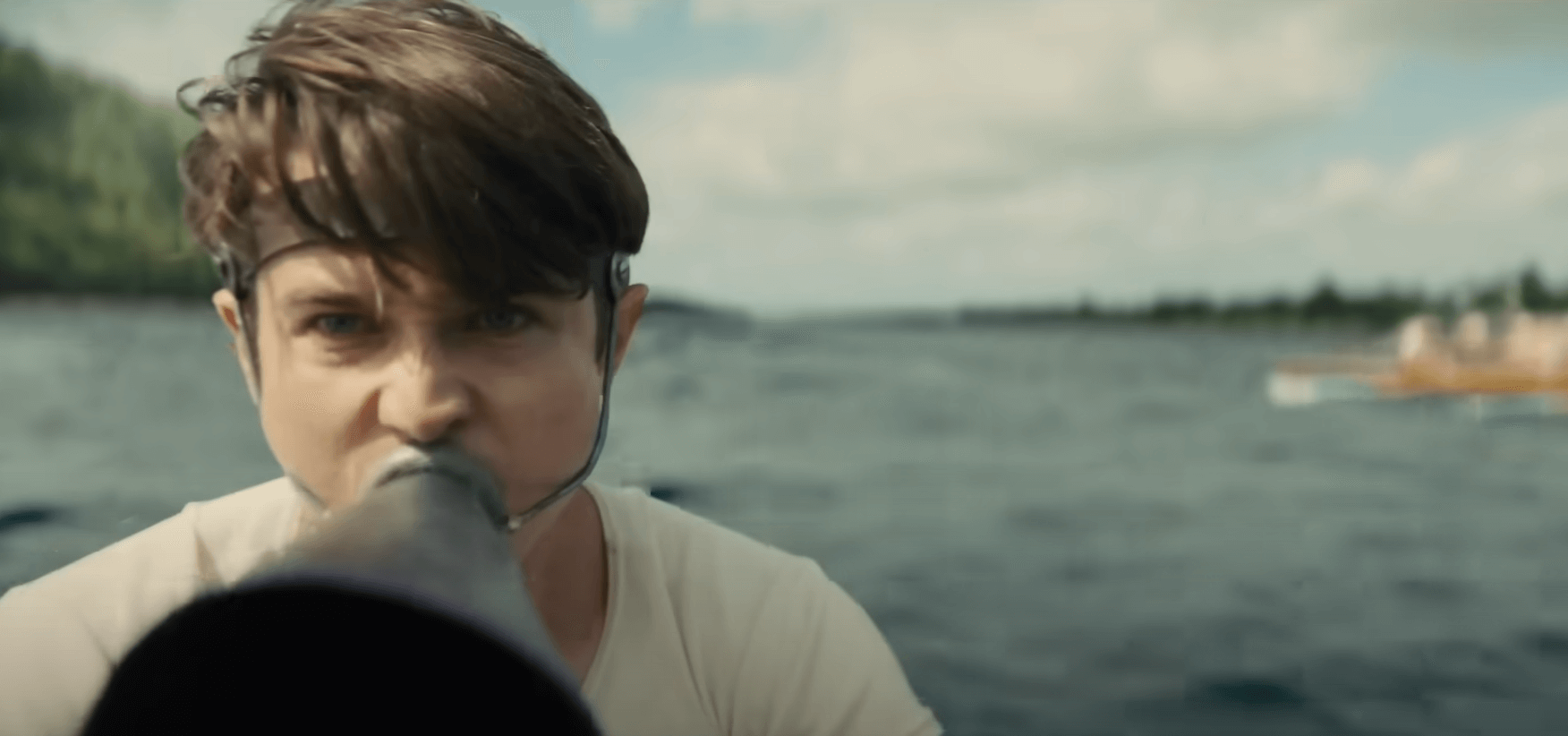When actor and director Luke Slattery ’09 got a call from his manager in early 2021 asking if he would audition for a period film set during the Great Depression, it took the mention of only one name attached to the project to convince him this might be a very good idea: George Clooney. The esteemed Hollywood figure had signed on to direct the picture, based on Daniel James Brown’s 2013 book The Boys in the Boat, about the University of Washington men’s rowing team that defied the odds to win gold in the 1936 Summer Olympics in Berlin.
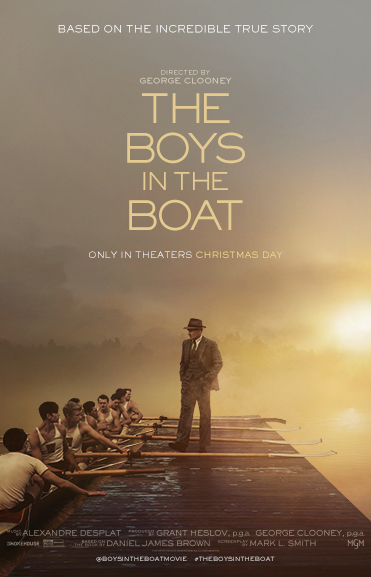
“Working with Clooney was always a dream of mine,” Slattery recalls. “He’s been on so many sets, he knows what’s going on in front of the camera and behind it. He has this ability to shoot the movie in his mind before he shoots it on the day of.”
That the film was built around a feel-good, crowd-pleasing story—with a miraculous arc that would have been too far-fetched to believe had it not been historical fact—was a bonus. “It’s always exciting to step into a time machine and try to represent a different period from history as best as you can,” explains Slattery.
He submitted his audition “self-tape” video during the COVID-19 pandemic. The self-produced audition format was the industry’s response to the pandemic shutdown, but it has since become a staple in a world of film casting that’s only become more digital in the years since.
Slattery, who’s worked in film, television, and theater in New York City for almost a decade, recalls, “In the ‘before times,’ I used to scurry around the city with a backpack full of different clothes to change into for in-person auditions. But now, I do everything from my living room with my phone. Natural light is key—simple is always better.”
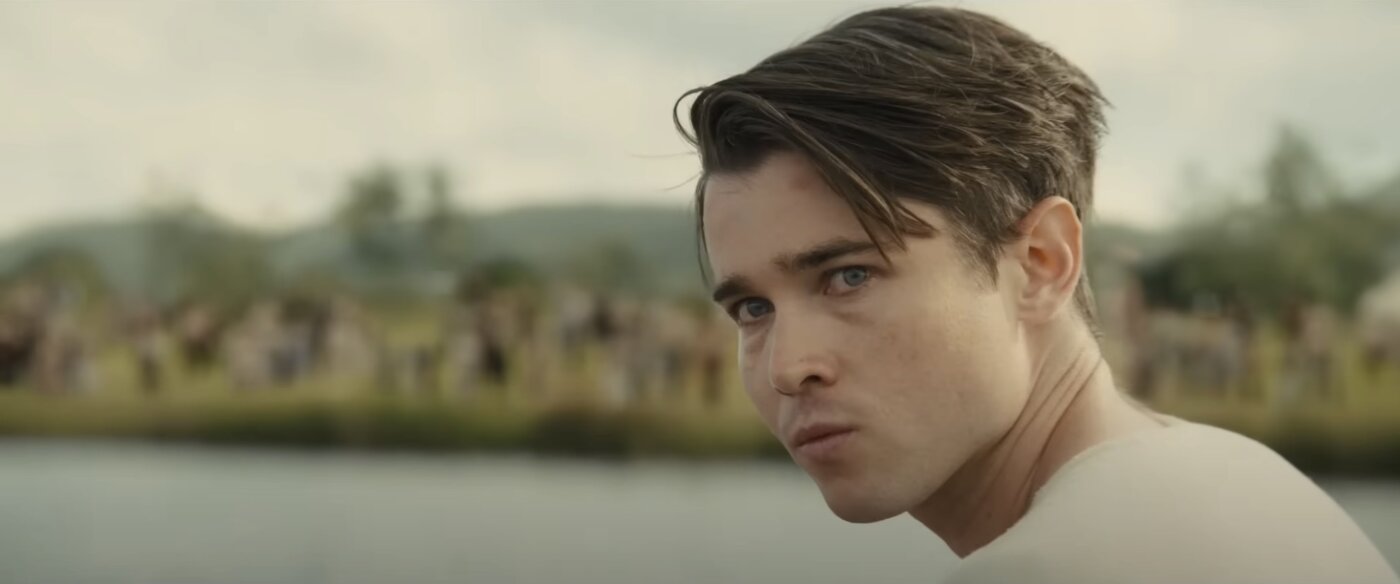
With his scrappy, intense on-screen presence, Slattery was a shoo-in for the role of Bobby Moch, the coxswain whose commanding drive at the front of the boat propelled the team to astonishing victory after victory. “The coxswain is sort of like a mix between a quarterback, a cheerleader, and a coach—you’re the conduit for the coach’s plan. Rowing is a grueling, painful sport, and it helps to have someone barking in your ear.”
But in the new era of self-tape movie casting, Slattery didn’t hear anything back after he submitted his audition video—not until late 2021, when he finally got a message from Clooney’s team saying that he’d won the pivotal part of the coxswain. “And the rest is history,” he says.
With the New York Times asserting that Slattery’s Moch is the role that “screams life into the picture,” The Boys in the Boat hit screens at the end of 2023 to stir holiday moviegoers with an old-fashioned tale of a band of working-class underdogs who heroically take on rowing’s moneyed establishment to become the pride of a nation. Moch, indeed, is center stage throughout the narrative, the motivating, megaphone-wielding force that welds together the efforts of eight rowers as they aim toward victory. “As one! As one!” is his memorable war cry near the end of a pivotal qualifying race, when Moch urges his men to row harder than seems humanly possible.
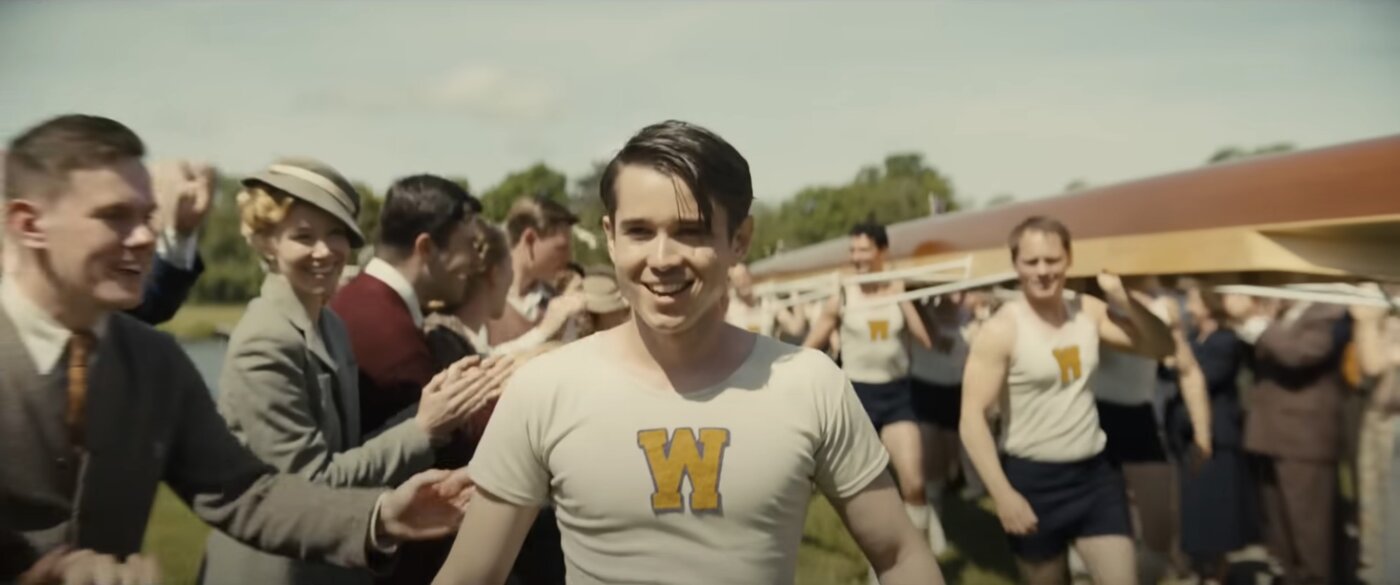
“Sports are vital,” says Slattery, a tennis player and four-year varsity letterman in lacrosse during his high school years at Colorado Academy. “Being on a team, pulling together, fighting for the guy next to you—there’s nothing like it.”
A love of the game
A CA Mustang from Ninth to Twelfth Grade, Slattery acknowledges, “I sure would squeeze a lot into a day back then”—not just varsity athletics, but also writing and acting. He credits then Director of Fine & Performing Arts Angel Vigil, Theater & Dance Department Chair Steve Scherer, and Master theater teacher and Technical Director Billy Bair with instilling “a love of the game—the thrill of collaboration, having a shared goal, and striving toward something together.”
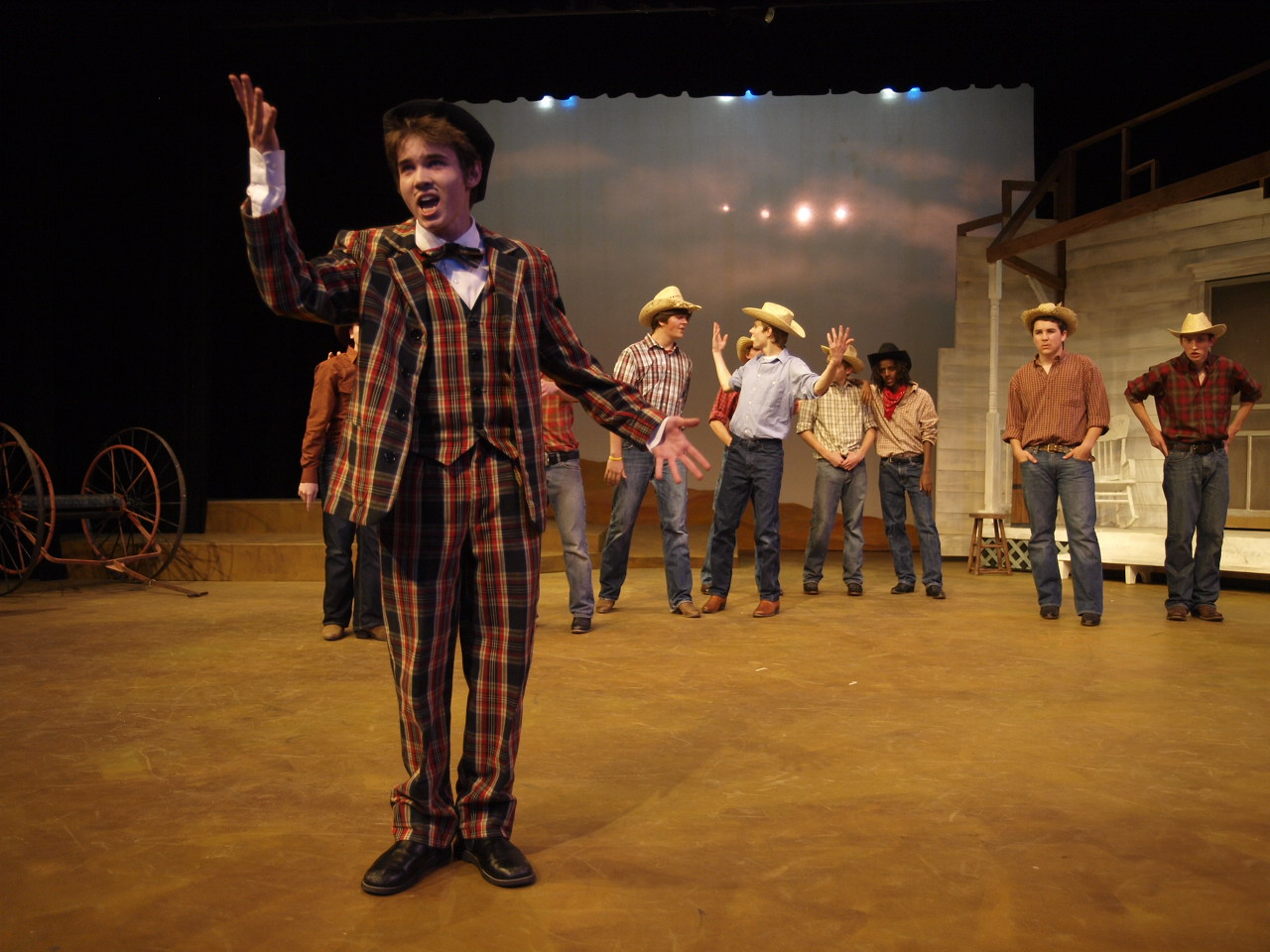
The rich programming and support that nurtured the CA theater community were central—as was the influence of former Upper School English teacher Betsey Coleman, who led a long partnership between CA and Denver’s Curious Theatre Company that allowed young playwrights to see their work staged by professionals. Slattery participated in Curious Theatre workshops with co-founder Dee Covington over three summers.
“A key piece of this business is communication and expressing yourself well,” says Slattery, “and CA’s emphasis on those things is a pillar of my existence that extends beyond entertainment. I think that ability to communicate is at the root of my capacity to pursue so many different things.”
After attending Vassar College, he moved to New York, where he found a variety of ways to establish the foundations of his multifaceted career. He wrote for the film-industry website IndieWire and started earning theater and television roles, including in the television series New Amsterdam and Steven Spielberg’s The Post, in which he appeared with Meryl Streep. He started directing music videos, and he even landed voiceover work in commercials.
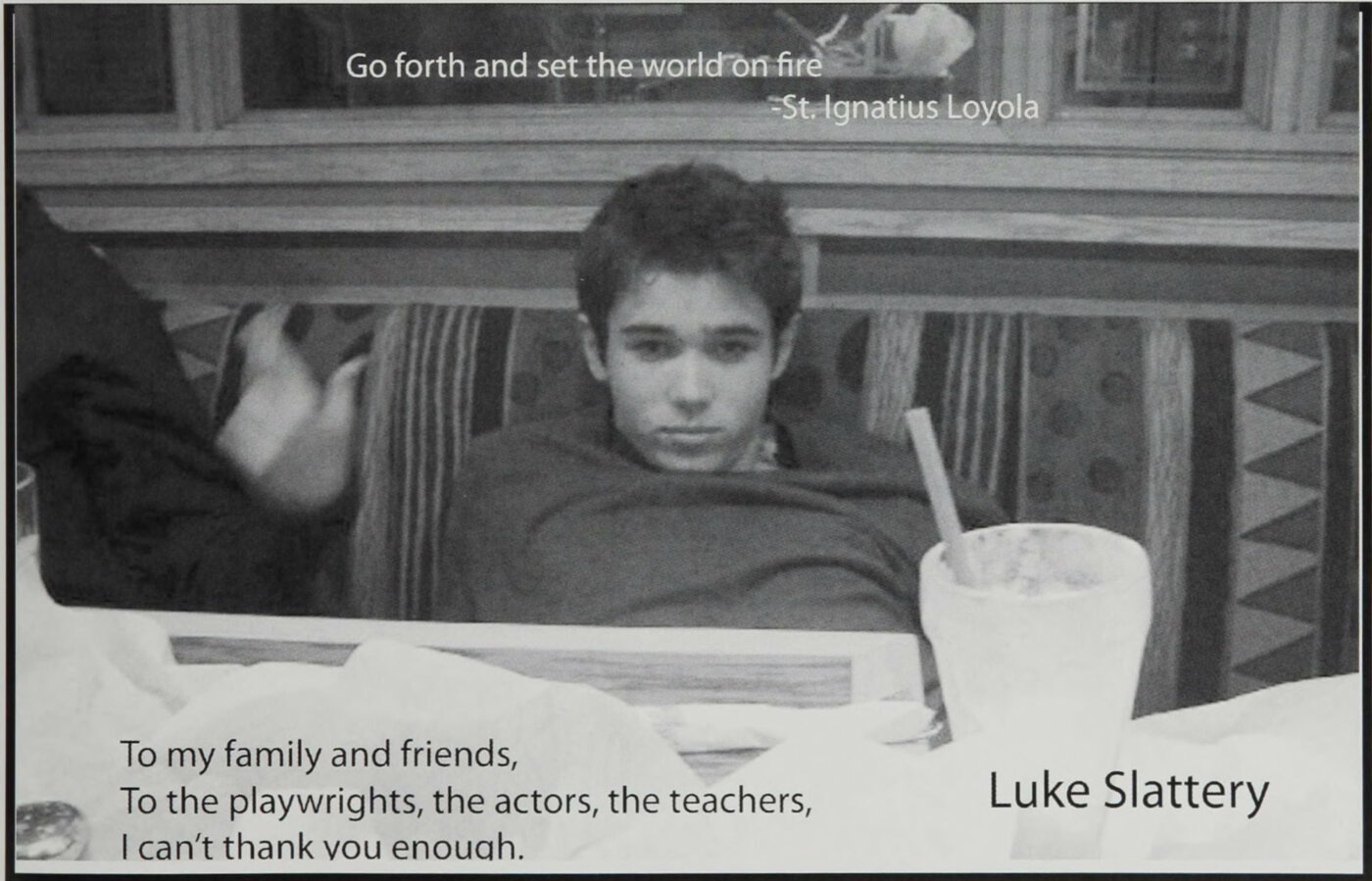
“For anyone trying to cobble together a career as an actor today,” Slattery says, “you have to be able to do a lot of things: film yourself, do voiceovers, work in motion capture. I love theater, but for me, it’s a special treat for when you’ve really made it. At least here in New York, if you want a shot at a sustainable life in acting, you’ve got to do it all.”
‘Act like you’ve been there before.’
In that sense, Slattery was certainly the right actor for The Boys in the Boat gig. CA and his early career had set him up for the film’s intense focus on collaboration and team, and for anything he didn’t already know how to do, there was another lesson he learned at CA, this time from the late coach Jean-Claude “J-C” Pritchard.
“J-C told me, ‘Act like you’ve been there before.’ That’s become one of my mottoes as an actor.”
While filming The Boys in the Boat, all the actors were under pressure to convincingly inhabit the characters of skilled college rowers. This was especially true for Slattery, who as coxswain had to persuade audiences he knew exactly how to lead a team and manage a finicky racing boat at all times.
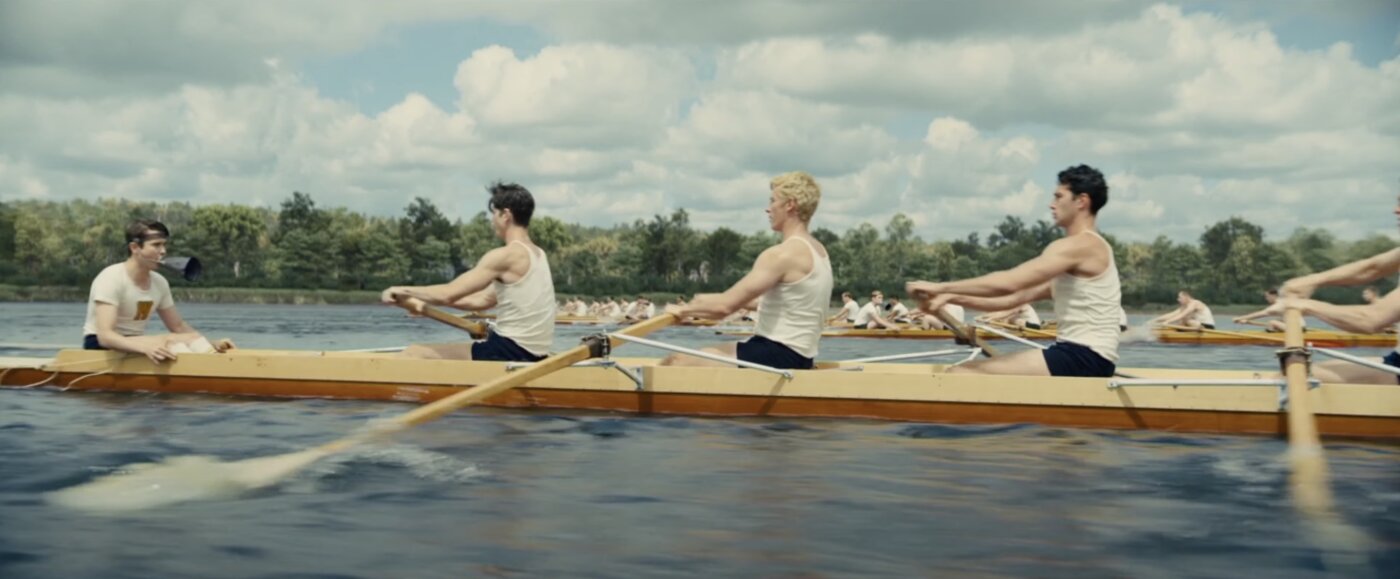
The group trained with professional athletes and coaches for months on the Thames River in England before shooting began in locations around that country in summer 2022, developing the requisite muscle mass and mastering the technical intricacies that are so important in rowing. For his part, Slattery learned enough from experienced, real-life coxswains that he was actually allowed to pilot the boat himself, instead of turning that job over to an onscreen double who was a pro.
“There were times when there were six other boats on the water, with wind pushing us all over the place, three multi-million-dollar camera boats tracking us, the daylight slipping away, and I was the one who was in charge of parallel parking a 40-foot racing shell with only my voice,” he recounts. “I credit J-C’s coaching with my ability to keep my head in that kind of situation.”
Another memorable production moment was an unscripted prank that made its way into the final edit. After an important race victory, team members were supposed to pick up Moch and throw him into the water. As he climbed out following the scene, his fellow actors threw Slattery back in again, then dived in after him. “It was great,” he states, though he notes that one coach advised him of the questionable Thames water, “you might develop superpowers after this—go take a shower.”
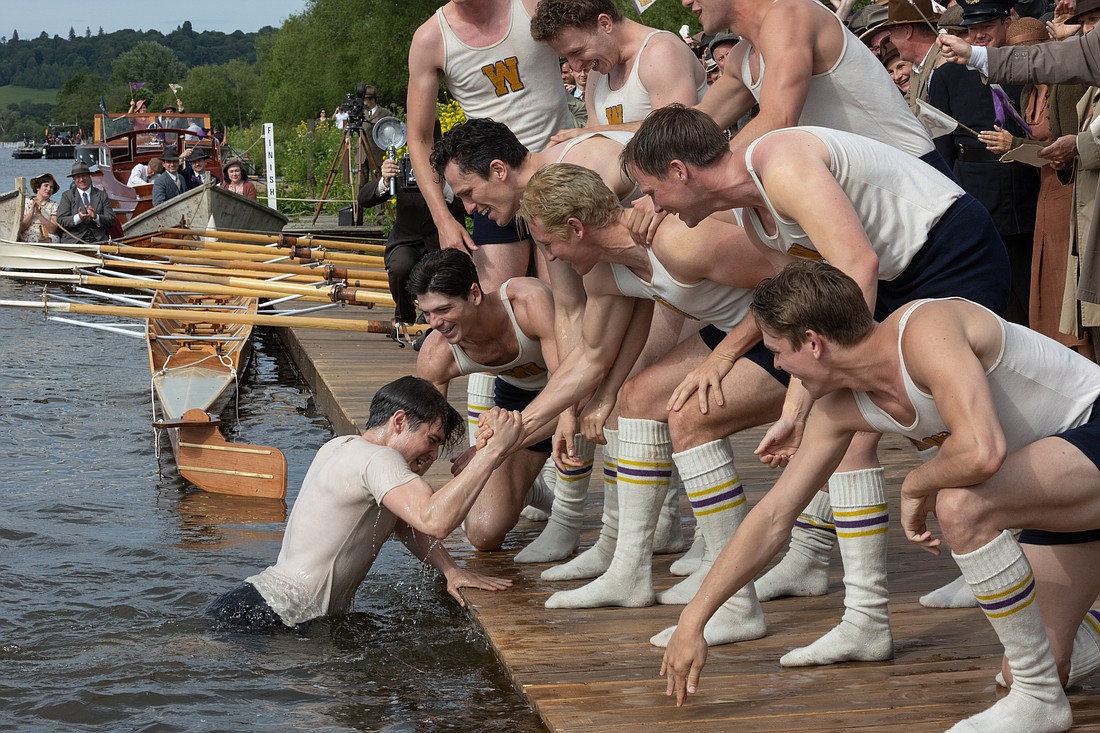
The moment speaks to one of the most important realizations Slattery took from being part of The Boys in the Boat.
“It’s something that Clooney always reminds you: As an actor you never take yourself too seriously. Your job is to say the words that somebody else wrote, to be a messenger and a steward for those words. You can’t be too precious—the story is the priority.”
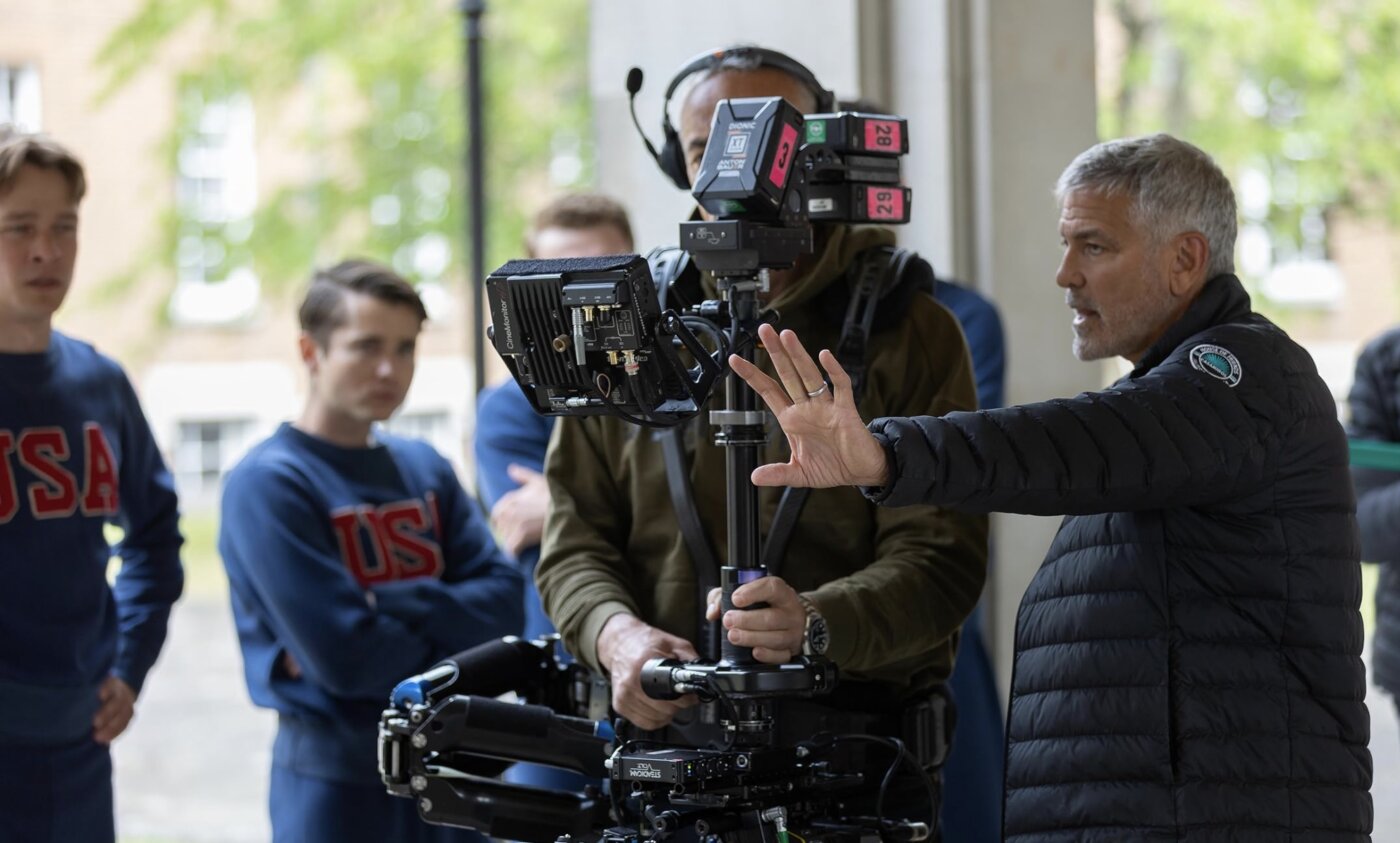
And thankfully, Slattery goes on, the story of the 1936 University of Washington rowing team is one worth listening to. “Think about the sport of rowing as a metaphor: You can only row well when you pull together,” he underscores. “This was a point in our history when we put differences aside and beat back cynicism. I’m proud to be a part of something pure-hearted, that tries to uplift.”
